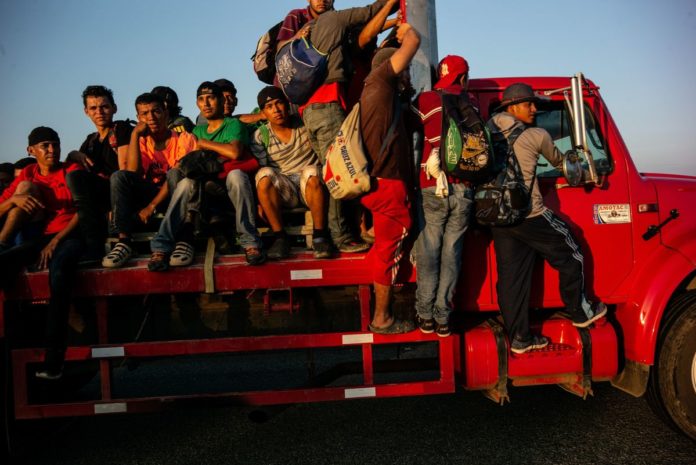(Central American refugees ride a cargo truck in Mexico. Photographer: Alejandro Cegarra/Bloomberg)
By Ben Bartenstein and Michael D McDonald
Honduras, Guatemala and El Salvador are, by all accounts, countries ravaged by gang violence, drug trafficking and extreme poverty. It’s these elements that have driven wave after wave of illegal immigration to the U.S., drawing the ire of President Donald Trump.
And yet the bond market views the nations — especially the first two — as stable, almost safe, investments. In some cases, they can borrow at similar rates to regional powerhouses Brazil and Mexico.
It’s an odd thing, almost improbable sounding. And it reveals a surprising truth about these countries: They all have rock-solid fiscal accounts.
How’s that possible in such destitute places? Because, it turns out, they earmark precious little money to basic social programs. Not only does this save them cash, allowing them to hold down their budget deficits, but it has the effect of encouraging the poor — those who would benefit the most from greater outlays for healthcare or housing — to emigrate.
This in turn has an added advantage for these nations: The migrants send growing quantities of dollars to their families back home, generating a steady flow of hard currency that is a central pillar of their economies. (For some perspective, their value is roughly 30 times greater than the aid money that a frustrated Trump pulled from the countries this week.)
“Migration is part of the model,” said Seynabou Sakho, the World Bank’s director for Central America. “A country may not have a big deficit, but at the same time, the needs of its people aren’t being met.”
Officials in the finance ministries and presidential offices of El Salvador, Honduras and Guatemala didn’t respond to requests for comment.
Read More HERE


